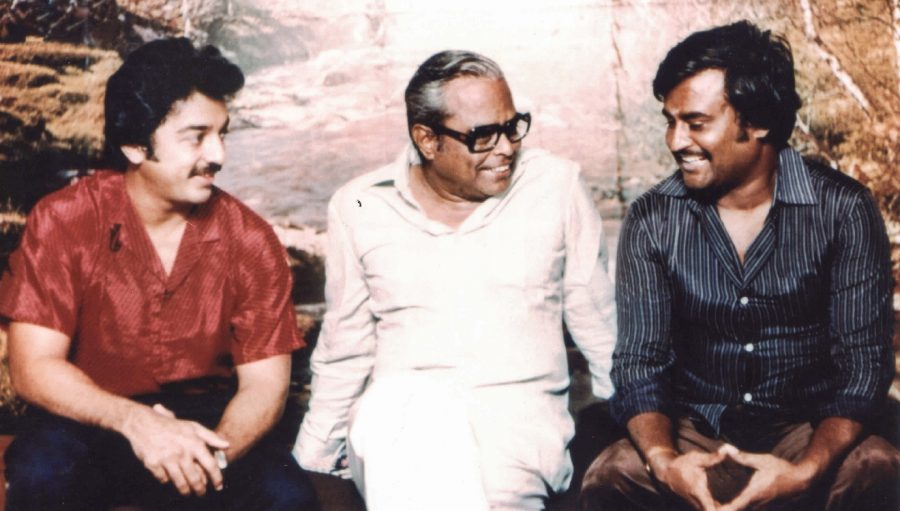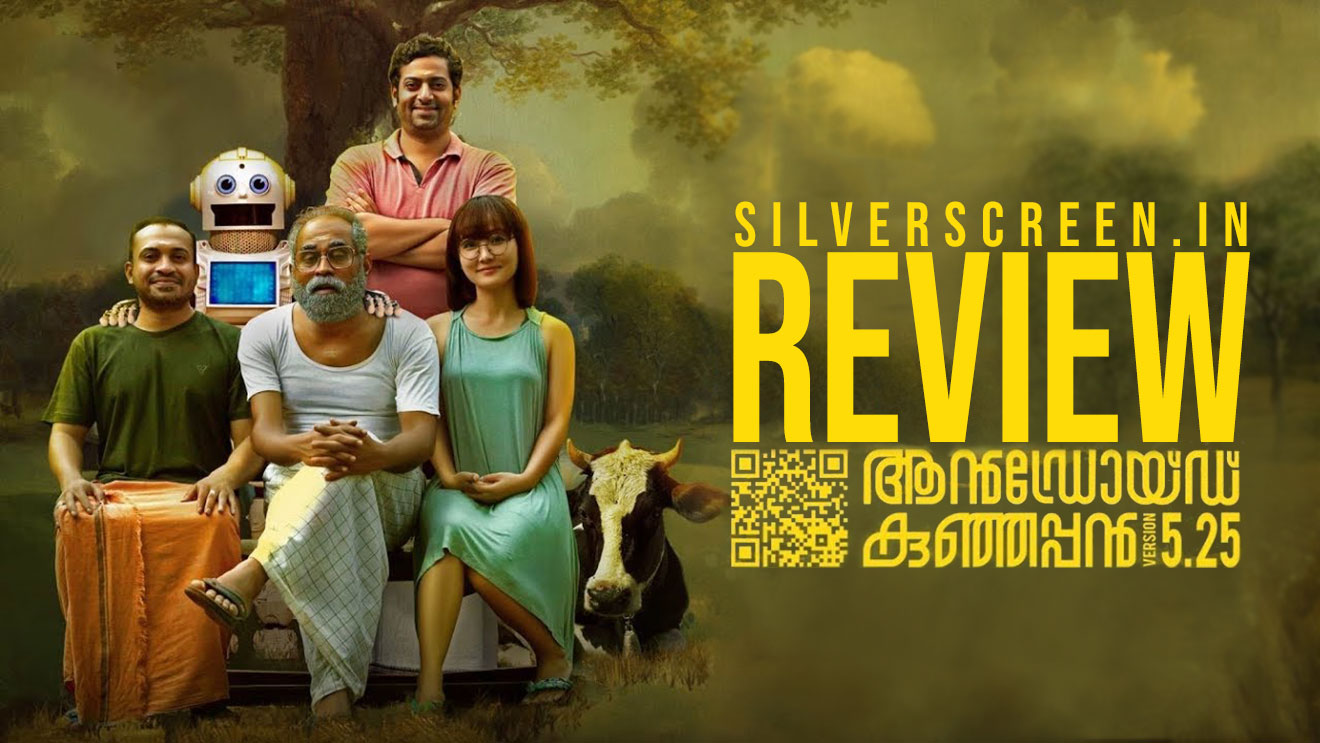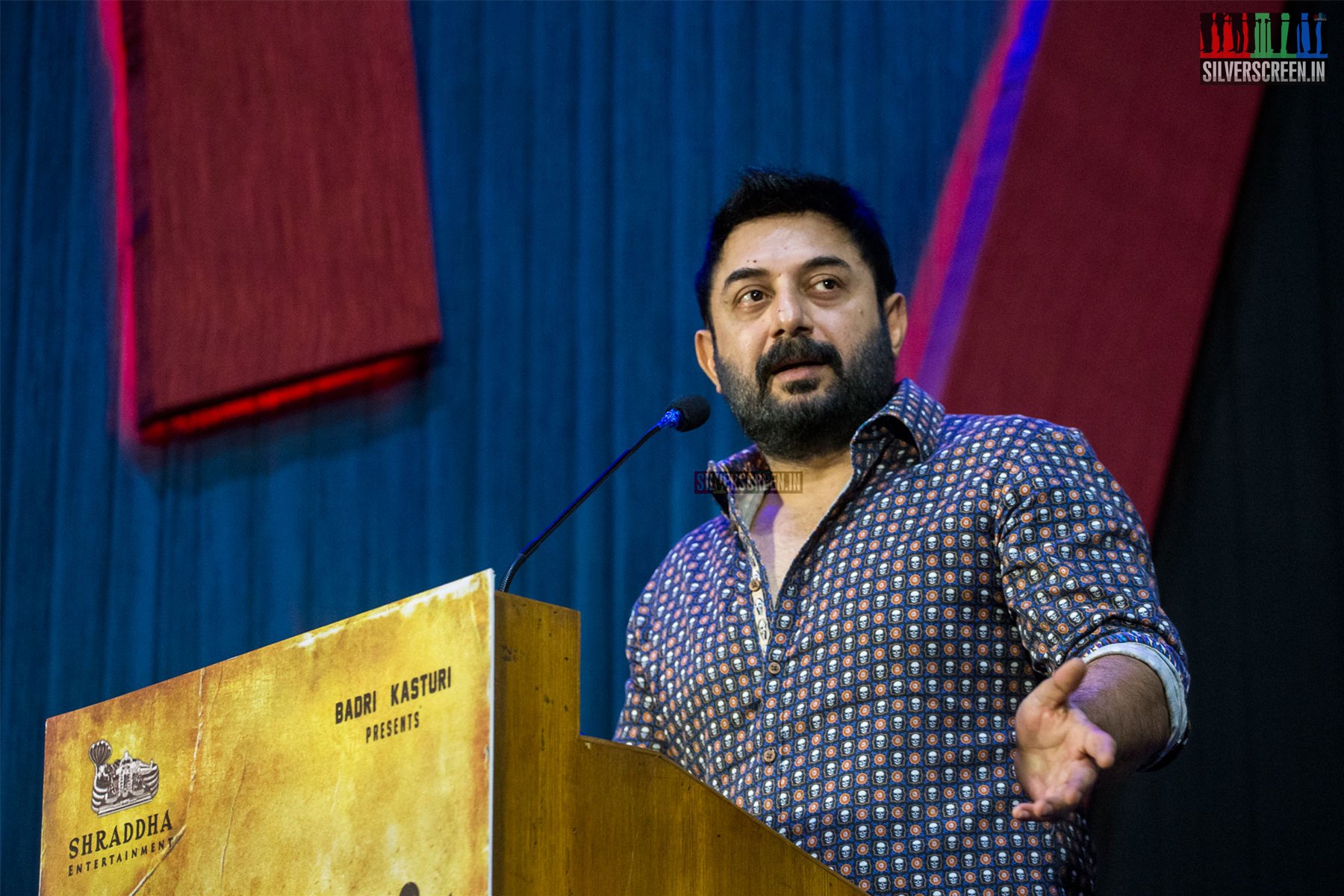Apoorva Raagangal – a movie that turned the tables on how we perceived relationships. There was love that defied age and every constraint imposed by society. A youthful Kamal Haasan falls for a gracious, glowing middle-aged singer played by Srividya. Added to this, the director introduced an anti-hero, a man who till then was handing out tickets on a bus in Bangalore. If Kamal was the stage on which the concert played out, Rajinikanth was introduced as the apaswaram (wrong note). The difference in their characters was limited to the big screen; off it, despite numerous rumours to the contrary, the stars have remained steadfast friends and each other’s well-wishers.
After a spate of successes such as Moondru Mudichu, Avargal, 16 Vayadhiniley, Thappu Thaalangal, Ilamai Oonjalaadugiradhu and Ninaithaley Inikkum, they took a conscious decision to not work together, but it was not due to ego hassles or professional enmity. Reports dating back to that decade say Kamal felt that when both starred in the same film, the budget would go haywire, and remuneration would be split between them, benefiting neither. And so, while Rajinikanth went on to consolidate his position as a commercial star, banking on his stylish mannerisms, fiery eyes and angry young man persona, Kamal dabbled with a variety of subjects, playing a playboy, a dancer, a businessman, a village bumpkin, and more, with elan.
Over the years, fans of the two stars have clashed (if not physically, then during debates) on numerous occasions. When I, a child of the 70s, was growing up, one of the few questions asked through school and college was: ‘Are you a fan of Rajini or Kamal’? There was no option to choose both. It did not help that after going their separate ways, both had ‘festival’ releases, setting the stage for a clash at the turnstiles. In 1991, the battle at the Deepavali box office was particularly riveting. Rajinikanth was part of Mani Ratnam’s Thalapathi, co-starring Mammootty, and Kamal lent life to the experimental Gunaa. The former was a commercial hit, but the latter continues to be celebrated as a film that was too early for its time.
They explored other artistic avenues too. Rajini stopped with writing the script for just two two films, Valli and Baba. Kamal directed films such as Chachi 420, Hey Ram, Virumaandi and Vishwaroopam, and shows no signs of taking a step back. Sabaash Naidu too has been revived, we hear. Of late, he’s dabbled in television too, with Bigg Boss, and has earned a whole new set of fans who watch the show just for him.
Over the years, even as they grew in strength, albeit on parallel tracks, the actors never hesitated to let the world know that behind the stars are two humans who are great friends. It helped that they came from the same school of acting — they were chiselled by the inimitable director, K Balachander. When they met their guru and the photos were released, stardom was left outside, and it was two eager students you could see. Which is why when rumour mongers keep speaking about enmity between the two, and a clash of interests, Mohan M, a close associate of KB for 27 years, and someone who’s seen both the stars up, close and personal, laughs.
For instance, last week, a common headline across websites and newspapers read thus: ‘Rajinikanth takes a dig at Kamal Haasan.’ This was during the inauguration of the Sivaji Ganesan memorial in Chennai. “In reality, Rajinikanth always considers Kamal his senior, almost an elder brother, when it comes to acting. He’s very clear about that. In fact, Balachander sir would tell Rajinikanth to watch Kamal act, so that he could learn. It’s irresponsible and unintelligent to consider his speech a slur on Kamal.”
Industry insiders say that the two stars are polite to a fault, and considerate of logistics when they have to attend a function. One person attends and leaves, then the next walks in. Not because they don’t want to be caught together, but because handling the rush can be problematic for the organiser.
Over the years, many might have tried to drive a wedge in their relationship, but would have invariably failed. “The best part about them,” says an insider in KB’s office, “is that they are brutally frank, and prefer clarifying issues right at the beginning. They will never let a conflict simmer and grow.”
Their mutual affection can be endearing. In an interview to The Quint, Kamal recalled Rajinikanth saying this of him: “He never let me fall. In 1983, when I wanted to leave everything behind it was Kamal who cajoled me back to the material world.”
Recommended
Speaking at a memorial meeting for Chandra Hasan, Kamal’s brother, The Economic Times reported Rajinikanth as saying, “My friend Kamal Haasan doesn’t have the kind of money the actors of this generation have now. It’s an unfortunate fact that I need to admit. But he never cared about it, and the reason was Chandra Hasan. I’m concerned about how Kamal is going to take care of his hard-earned money without Chandra Hasan’s presence.”
With time, their children have worked with each other too. Rajini’s daughter Aishwarya directed Kamal’s progeny Shruti in her directorial debut 3.
Even now, when the two stars meet anywhere, you feel you see two friends meeting. There’s little artifice or show; just plain good-natured fondness for each other. You almost see the eager boys who were once students of KB Sir.
Irrespective of whether both stars go on to start political parties or plunge into active politics, like they’ve hinted, and sit on either side of the political fence, you can be sure that they will find a sweet spot where they will continue to bond as humans.



